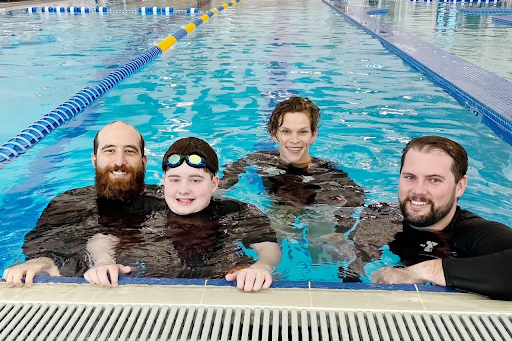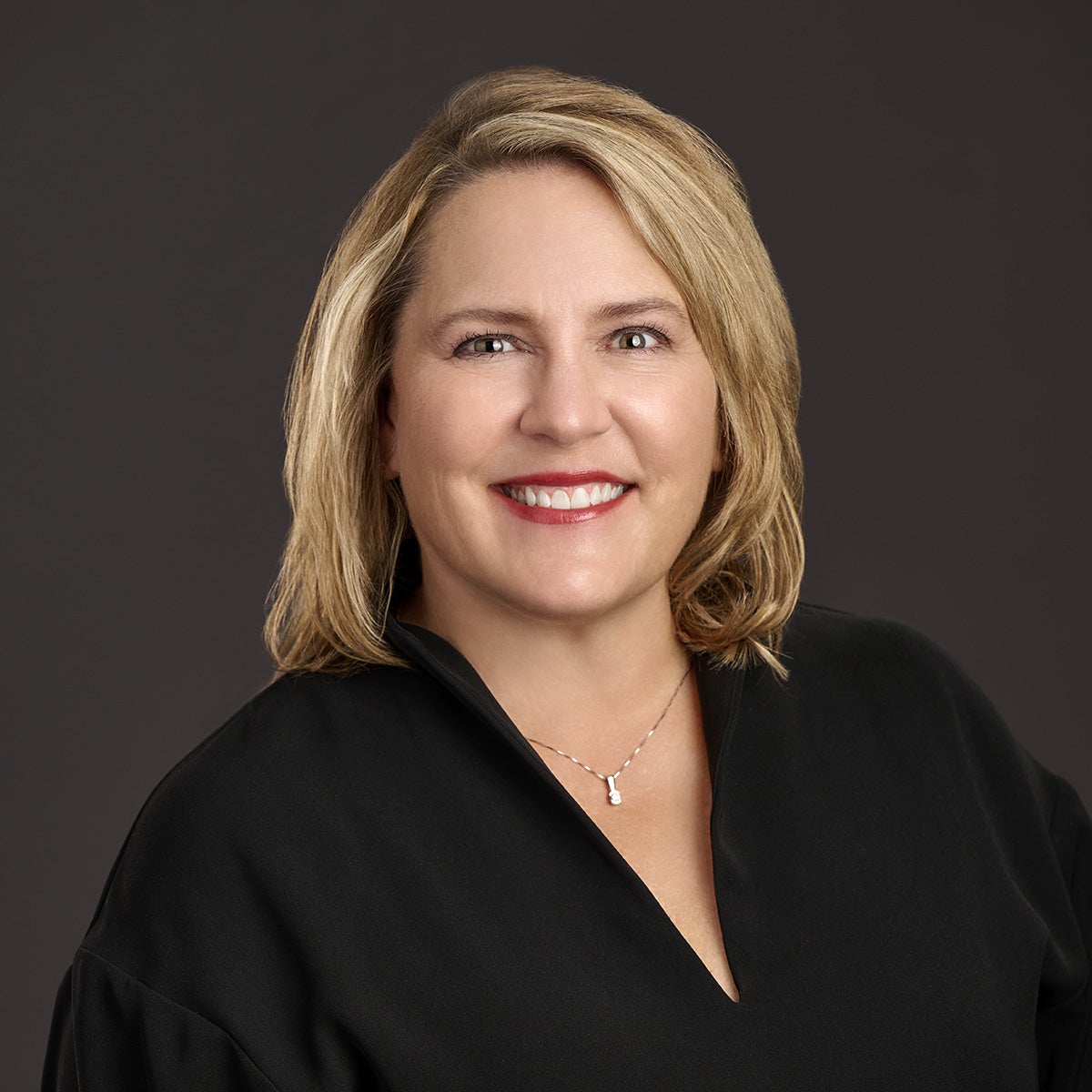
In a pool at the Tomlinson South Meridian YMCA, nursing student Dallin DuFort learned valuable skills that have nothing to do with swimming. DuFort is a student in community and population health nursing and is part of a Service-Leaning project which gives students hands-on experiences serving children and young adults who are neurodiverse through the YMCA’s Together Helping Realize Inclusive Victories Everyday, better known as THRIVE, AquAbility lessons.
“My main takeaway has been the importance of personalized, holistic patient care,” DuFort said. “Every day we work with a patient in the water, they have different levels of energy, enthusiasm and strength. Just because something worked one day doesn’t mean it will work the next time, or for someone else. This experience will help me be more open to trying new things with patients, but also starting each day and interaction fresh with them.”
The course is taught by Chelsea Painter, clinical assistant professor in the School of Nursing, using Service-Learning, a community-based form of experiential learning that the American Association of Colleges and Universities describes as a “high impact practice.”
This semester’s partnership with the YMCA is led by Jeannine Suter, clinical assistant professor in the School of Nursing and coordinator for the Community and Population Health Nursing course, and Andrea Parker, the YMCA’s THRIVE director. Parker currently works with three different academic disciplines to ensure Boise State graduates have real-world experiences working with folks who are neurodiverse.
“Jeannine and her team of instructors are engaging a diverse set of community organizations like THRIVE to foster sustainable partnerships throughout the Treasure Valley and in local rural areas,” said Kara Brascia, director of the Service-Learning Program in the Center for Teaching and Learning.
Meeting a community need
AquAbility at the YMCA is a THRIVE program that provides a safe, positive and happy experience for children and young adults who are neurodiverse. A driving force behind this program is research indicating autistic people are at greater risk of premature death due to drowning compared with the general population.
“The best part has been making an impact in the daily lives of each patient and seeing them light up as they get into the water for 30 mins of therapy and play,” student Dallin DuFort said.
Support the work of nursing students at Boise State.
Inspired by this story? Let's chat!
-

Heather Jauregui
Senior Director of Development
-
